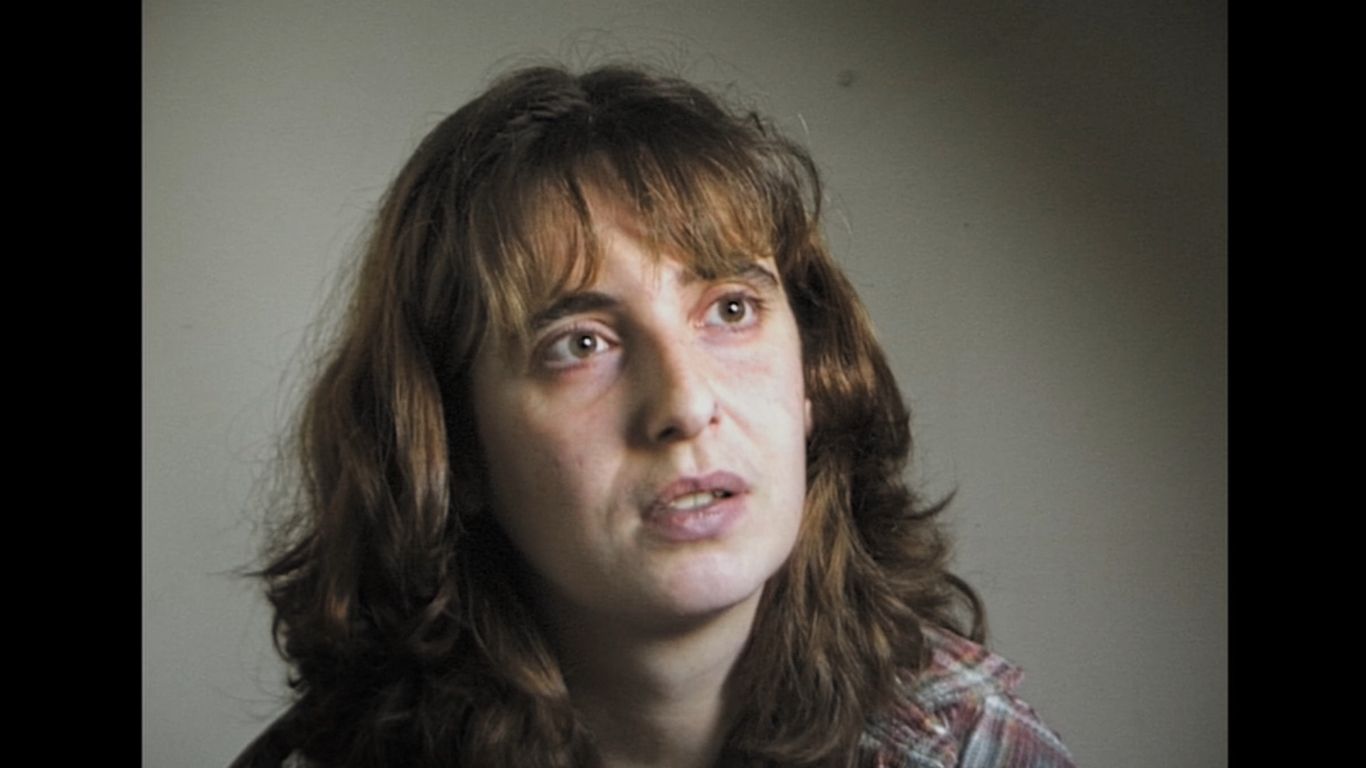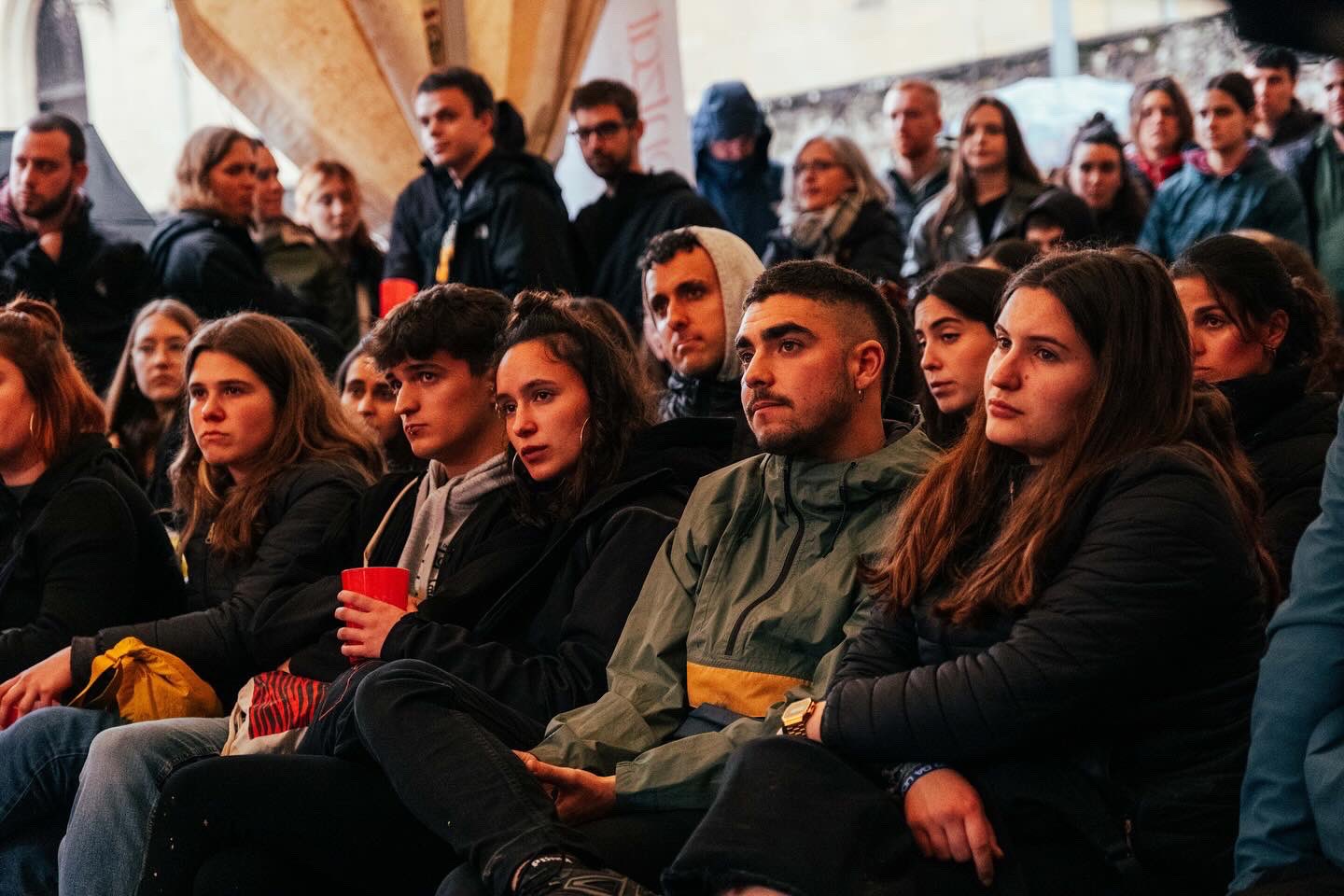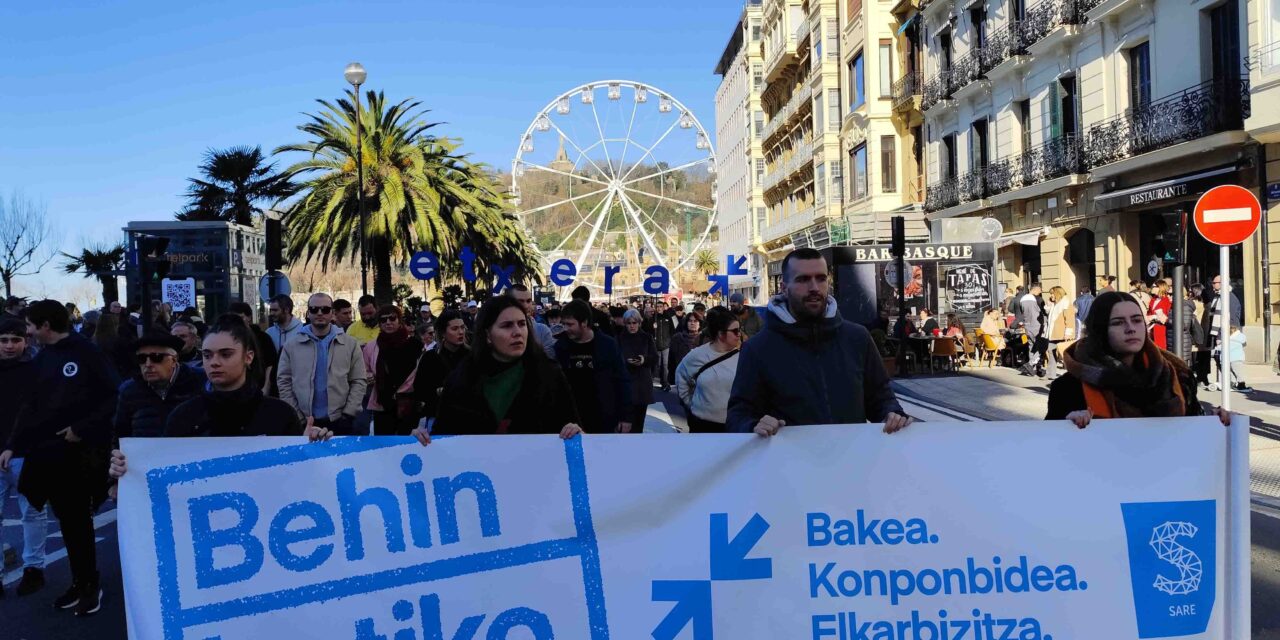“110 prisoners should be in medium freedom or parole”
- As every year in January, 13 tens of thousands of people met in Bilbao in defence of the rights of Basque political prisoners and called for an end to exceptional prison policies. There are currently 142 prisoners, with an average age of 50-55 years sentenced to more than 20 years in prison. We have spoken to Mikel Globñano (Etxarri Aranatz, 1976), representative of the Network, about the situation of prisoners.
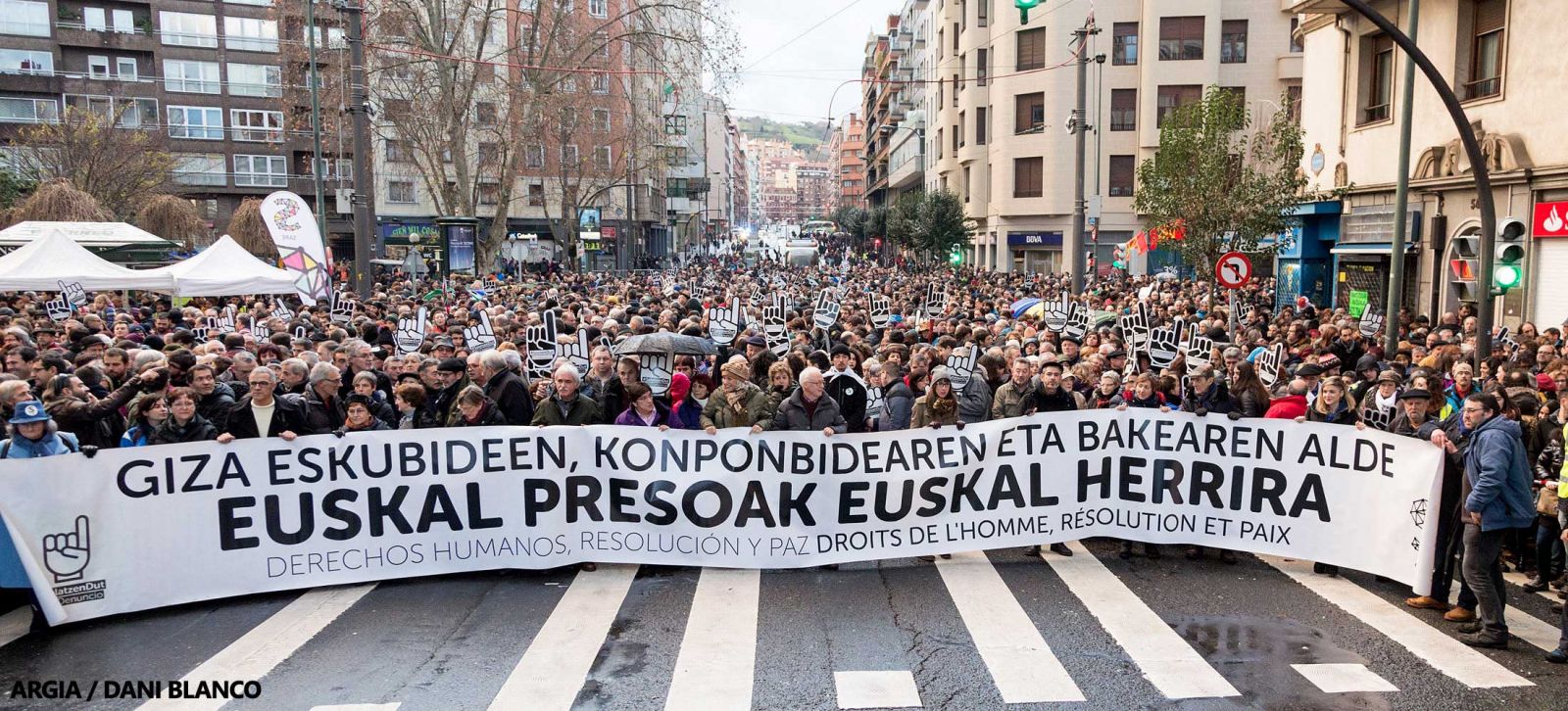
After the end of the dispersal, exceptional laws for Basque political prisoners are called for to end. What are those exceptional laws?
The anti-terrorist policy of twenty years ago is still in force today, which has nothing to do with the current situation. ETA left armed in 2011 and dissolved in 2018. However, the jurisdiction of the prisoners remains in the hands of the Madrid organs and are also exceptional judicial bodies. Many Basque prisoners meet the requirements to move from second to third and from third to parole, but are hindered in taking those steps. In short, the National Court of Madrid assumes the third grade as absolute freedom, rather than as another way of serving the penalty.
In addition, there are two other laws of exception: on the one hand, the non-abolition of the years of imprisonment served in the French State of the prison sentence here, and on the other, the one permitting the life penalty, that is, the fulfilment of the prison sentence of 40 years.
What, in general, is the current reality of data on Basque prisoners?
The Group of Basque Political Prisoners currently has 142 prisoners, 19 of them on parole. In the second grade there are 108 of them, 21 with article 100.2, who go out to the street to perform various programs or works. It is a second degree attenuated, in other words, the step before the third degree. In third grade there are 23 prisoners, of whom eleven have telematic control.
In recent years, 27 prisoners have passed to third grade, of whom ten have been turned over and six have had to return to prison. Two cases suspend the third grade.
In addition, more than 45 inmates are serving three quarters of the sentence and are therefore entitled to parole. And about 70 inmates have more than half of the sentence, so they can get third grade.
"On average, they have already served 20 years of condemnation in the collective. It would therefore be logical for the prison sentence to be served in a regime other than the closed one"
Many prisoners and prisoners remain in prison for more than 20 years, it is terrible given that ETA’s armed activity ended in 2011.
Yes, on average, they have already served in the collective the penalty of over 20 years. It would therefore be logical for the prison sentence to be carried out in a regime other than the closed one, but exceptional policies are used as sanctions and forcing them to carry out the penalty in full under a closed regime. It should also be noted that the average age of inmates is 50-55 years and there are some over 70 years. Among them, the most significant case is that of Joseba Arrangi, who has been revoked three times in the third grade and has had to return to prison.
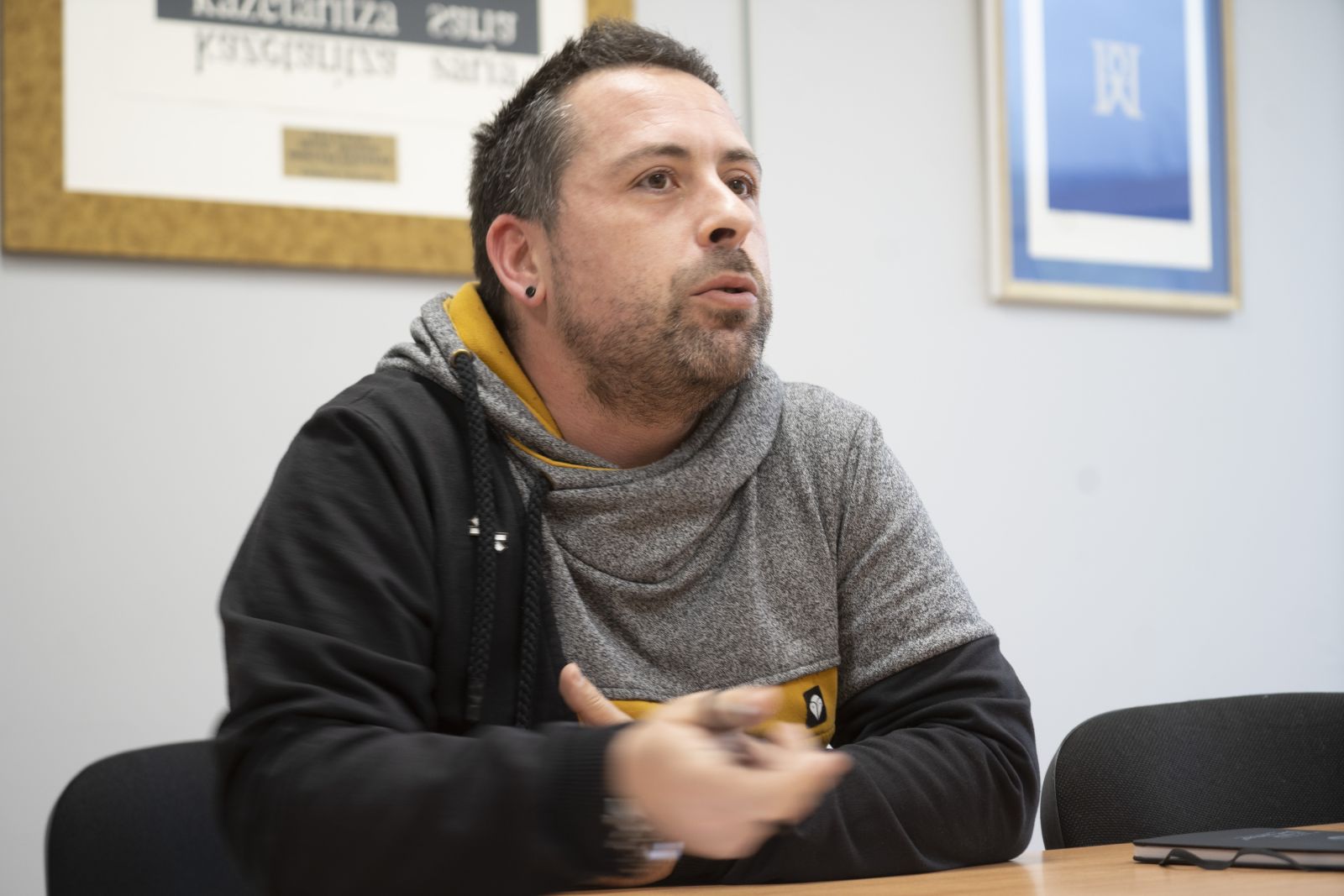
What are the conditions for a prisoner to obtain the 3rd grade? Who decides?
It's mostly three. On the one hand, the prisoner has completed a prison term. Once half of the penalty is fulfilled, the inmate can get the permits and gradually gets the third grade. On the other hand, a good behavior within the prison. And finally, accept the pain done. As a result, the Treatment Committees of the prisons devote the third grades, which are being appealed to the National Court.
And what arguments are you using to reject the third grade of the National High Court?
The main argument is that of condoning, they consider that the expression being made by each prisoner is not sincere. Many years ago both the EPPK and each of the prisoners made a statement on the recognition of the suffering that took place in this conflict. The National Audience, on the other hand, wants to apologize, but in its form.
At this time in January there is more talk of prisoners in society, but little beyond this time. Is it good or bad?
It depends and how it reads. This can have positive and negative things. Many may think that once the dispersion is over the problem is solved, but that is a huge mistake, because the cycle of violence and suffering in the Basque Country has not yet been closed. In order to make progress in coexistence we must bring to our people human rights and a culture of peace, a real guarantee that the cycle of violence will not be repeated. Faced with the scheme of revenge and loser, the consequences of the conflict must be resolved. Some people said that at the end of ETA's violence everything was going to be channeled, and now they're continuously doing everything the same. The Basque society wants to leave this cycle behind, and to do so the question of prisoners must be resolved, with the respect that all victims of violence in this country deserve.
"The National Court of Madrid, in short, recognizes the third grade as absolute freedom rather than as another way of serving the penalty"
A mobilisation was needed to dismiss the prisoners. Today, however, more is preferred to work in silence. Is it more effective for the gradual withdrawal of prisoners?
We must act in both ways. There is work that must be done with discretion, but it must also be mobilised on the street. Through exception and authoritarian approach, some want to make the issue of prisoners chronic, and they constantly lead it to political confrontation. In short, this people needs an agenda that respects the rights of all and recognizes the suffering of all.
Have we recently learned that the President of the Constitutional Court has proposed not to repeat the Bateragune case? Is that, for example, the consequence of tacit work?
I don't know that. I know that most Basque society wants it. There too, the pressure being exerted as a people helps a great deal, and when we also launch the cry to the House, we do not ask for impunity, but we abandon exceptional measures. If we want to change things, street mobilization is fundamental.
The Basque Government acquired prison skills in September 2021. What assessment do they make of their work with Basque political prisoners?
Developments have been positive and the Government ' s prison capacity is developing in parameters of normalcy in relation to Basque prisoners. Important steps are being taken, but we are still far from the possible results of the entry into force of ordinary prison policies. Given the length of imprisonment of inmates, 110 prisoners should be on average or on parole. At the moment, however, these third grades are taught by the Basque Government, but then they are rejected by some judges of the National Court.
PPk Senatuan proposatu du, gainera, euskal preso politikoek damua erakutsi behar izateko xantaia areagotzea.
Historically, a court of the Spanish Monarchy passed the following resolution: "The officers in charge of the custody of Iratxe Sorzabal applied electrodes to force him to testify, which constitutes a flagrant violation of his fundamental human rights." In other words, after the... [+]
“Saihestu egingo dira giza eskubideen, ordenamendu juridikoaren eta espetxeetako tratamendu psikosozialaren aurkako balioak eta jarrerak babestea, justifikatzea eta goratzea ekar dezaketen adierazpenak”, dio, besteak beste, agiriak. Azaroan Eusko Jaurlaritzako... [+]
Asteazken eguerdian berreskuratu du askatasuna astigartarrak, zigorra osorik beteta. Espainiako Auzitegi Nazionalak otsailean inputatu zuen ETAren zuzendaritzako ustezko beste lau kiderekin batera, Gregorio Ordoñezen hilketa leporatuta.
Martxoaren 13an lau urte bete dira Fran Balda arbizuarra istripuz hil zela. Preso, iheslari eta deportatuen etxeratzearen alde egin zuen lan, eta haren bost kidek idatzi diote gutun hau.
Frantziako Poliziak 2002an atxilotu zuen zumarragarra, eta 30 urteko zigorra betetzen ari da. Sare Herritarrak mobilizazioa deitu du datorren ostiralerako, Urretxuko Potros Plazan.
Iratxeren Bidasoaldeko Lagunak ekimenak deituta, dozenaka lagun kalera atera ziren atzo Iratxe Sorzabal preso politiko irundarraren absoluzioa eskatzeko eta behingoz etxera ekartzeko, torturak salatzeaz gain.
Sare Herritarrak antolatuta, pasa den urtarrilaren 11n Bilboko kaleak bete zituen manifestazio jendetsuaren ondoren, berriz sortu da eztabaida, euskal presoei salbuespen legeriarik aplikatzen ote zaion. Gure iritzia azaltzen saiatuko gara.
Espetxe politikan aldaketa nabarmena... [+]
Just as we experienced the flourishing of the Basque Country with the help of the artists, so that this time, taking advantage of their impulses, we continue to make our way together giving the necessary support to the Basque political prisoners, exiles and deportees
The... [+]









